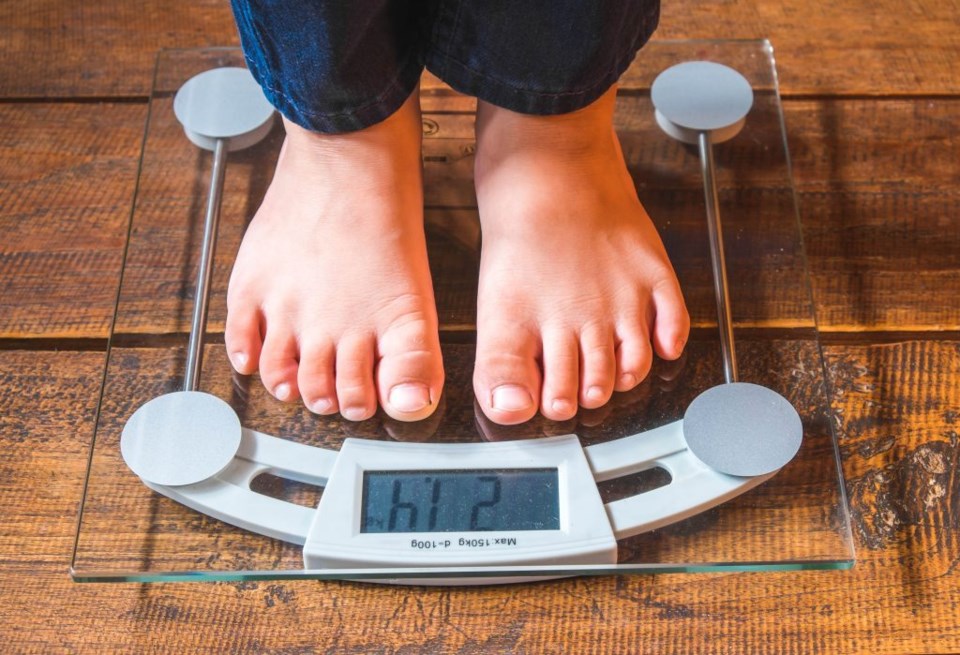If you’re working on a list of New Year’s resolutions, you might be considering a new diet for yourself, your spouse or even your children.
Dietitians and health experts have long warned about the inefficiency and potential harms of restrictive dieting, but now, experts are worried about weight loss plans aimed at kids and teens — and their concerns aren’t unjustified.
From 2013 to 2016, nearly 38 per cent of adolescents between the ages of 16 and 19 said they had tried to lose weight during the past year, according to new data from the U.S. Centers for Disease Control and Prevention’s (CDC) National Center for Health Statistics released in July.
The data found that among those who had tried to lose weight, the most common ways were through exercise (83.5 per cent), drinking a lot of water (52 per cent) and eating less (nearly 49 per cent). Over 82 per cent of teens said they had tried to lose weight using two or more methods.
In August, there was widespread backlash from body-positive activists when weight loss company WW (formerly Weight Watchers) launched an app called Kurbo targeting youth aged eight to 17.
WW’s chief scientific officer, Gary Foster, said that the program was designed to be “part of the solution to address the prevalent public health problem of childhood obesity,” according to a statement released earlier this year.
‘Complicated relationships with food’
The shift towards encouraging weight loss in young people concerns experts like Dr. Valerie Taylor, head of psychiatry at the University of Calgary.
“It starts people on this very complicated relationship with food,” Taylor previously told Global News. “If you eat the bad food, you’re a bad person. That is the message. If you do eat them, you have a problem, you have issues with willpower, with self-control, you’re weak. [Children] very much internalize this.”
“Every person needs a vitamin D supplement. For children over one year, this is 600 IU of vitamin D3 daily,” registered dietitian Desiree Nielsen previously told Global News.
Beyond that, Nielsen said that whether a child needs an omega-3 supplement or a multivitamin, for example, really depends on how balanced their diet is and “how accepting they are of a wide variety of healthy foods.”
“If a child eats a wide variety of healthy foods, a basic multivitamin or calcium supplement isn’t necessary,” she said.
Health professionals are also concerned because a focus on weight loss can have lasting negative effects into adulthood.
Disordered eating in the future
Viewing food as either “bad” or “good” can cause serious problems with disordered eating in the future, said Taylor.
Developing unhealthy dieting behaviours as an adolescent puts people at a greater risk of having disordered eating habits as an adult, she said. This is particularly true for women.
“Eating disorders are obviously very complex and have a lot of factors that contribute to them,” Raffoul previously told Global News. “But dieting at a young age is a pretty major risk factor.”
Focus on being healthy instead
One-third of children worldwide under age five — roughly 200 million kids — are either undernourished or overweight, according to a recent report by the UN children’s agency.
In Canada, childhood obesity rates continue to rise. In fact, they’ve nearly tripled in the last 30 years, according to Statistics Canada.
That’s why, in the opinion of parenting expert Alyson Schafer, it’s never too early to teach kids about healthy eating habits and the benefits of regular exercise. However, there is a right way to go about it.
“Modelling good habits and attitudes while discussing health from an educational perspective is key,” Schafer previously told Global News.
When it comes to getting your kids to exercise, Schafer says to make sure that you just don’t put on a YouTube video and let them follow along alone.
“That is not social enough for youngsters,” she says. “They don’t need more screen time alone. If you are doing yoga, ask them to join you … Be active and inspire them. Discuss the health benefits in an age-appropriate way.”
It’s crucial to have healthy conversations about weight. According to Raffoul, it’s important for youth to see messages that promote health — not weight loss.
“If we continuously focus on needing to lose weight as an indicator of health, then people will do whatever they can, or feel like they need to do, to lose that weight without focusing on not only their physical health but also their mental health and social well-being,” she said.
— With files from Global News’ Meaghan Wray, Laura Hensley, Arti Patel and Dani-Elle Dube
Follow @meghancollie